'We called him Sher-e-Kashmir but we realised he was no lion but a pussycat who surrendered.'
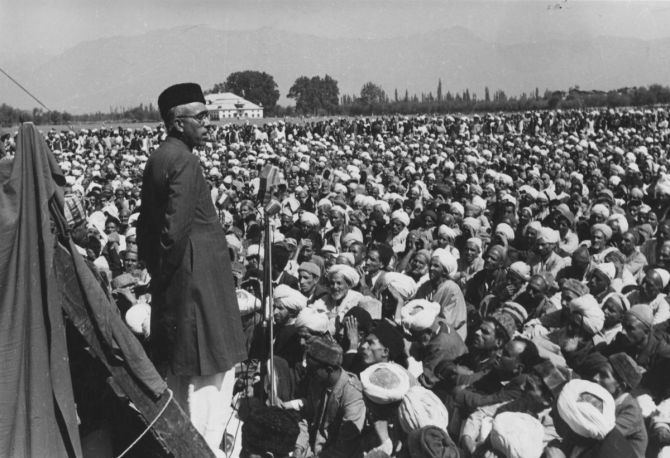
Srinagar is like a city transformed, with the people looking with hope at electing new leaders when Kashmir votes in three phases -- September 18, September 25 and October 1.
But this was not always the case in Kashmir as elections were normally and regularly boycotted. In many polling booths there was zero percentage of voting for decades after militancy began in the late 1980s.
Today, locals say the voting percentage in Kashmir could cross 60 percent, which in itself will be a record.
But the people of Kashmir who are looking so eagerly at the elections today, how did they fall into the trap of terrorism for four decades and how did it all end? Will terrorism still make a comeback?
Akbarbhai, a resident of Srinagar, has seen the ups and downs in Kashmir for four decades. Hope, followed by regret, followed by rejection. The cycle repeating endlessly.
Akbarbhai refused to share his last name, but he was more than willing to share his insights into how terrorism emerged in Kashmir, and how it is all ending with a sign of hope.

The winner of two Academy Awards for best supporting actor, his title role in Zorba the Greek filmed in 1965, remains his most memorable role. Photograph: Reuters
As he sips the brew at a coffee shop in downtown Srinagar, Akbarbhai asks, "Do you know Anthony Quinn?"
"You mean the Hollywood actor?", I respond, referring to the actor Indians of an earlier generation know from films like Guns Of Navarone and Zorba The Greek.
"How is Anthony Quinn related to the Kashmir problem?" I ask, puzzled.
Akbarbhai rewinds to four decades ago and recalls an incident at the Regal cinema on Regency Road, Srinagar.
His eyes sparkle as he remembers how he with a bunch of his friends, all in their 20s, watched the movie Lion of the Desert starring Anthony Quinn.
In the movie Quinn played Libyan freedom fighter Omar al-Mukhtar who fought the Italian fascist forces in the 1920s. He was caught later and hanged in 1931.

Recalling al-Mukhtar's last words before being sent to the gallows, Akbarbhai gets emotional and declares with passion, "We fight or we die."
All his friends were taken aback by ths and were in tears when it ended.
"We were not alone. The entire theatre was in tears. They were angry to see the end of the Libyan hero in such a tragic manner," remembers Akbarbhai.
"The crowd saw a poster of (then Jammu and Kashmir chief minister) Sheikh Abdullah outside the theatre. They started throwing slippers at it. One person started beating Sheikh Abdullah's face with his slippers," Akbarbhai recalls with a wry chuckle.
There was no slogan of 'Azaadi' then. It was just the anger of the Kashmiri people being expressed spontaneously.
The crowd that emerged from the Regal cinema felt cheated by Sheikh Abdullah, they felt he should have gone to the gallows rather than give in to Indira Gandhi's government in New Delhi and accept the chief minister's post in 1975.
"We called him Sher-e-Kashmir (Lion of Kashmir) but after watching the movie we realised he was no lion but a pussycat who surrendered," says Akbarbhai.
Sheikh Abdullah, then the most popular Kashmiri leader, was instrumental along with Maharaja Hari Singh to agree to the accession of Jammu and Kashmir with India on October 26, 1947.
He then fell out with Jawaharlal Nehru, was dismissed as Jammu and Kashmir's premier (as the head of the state's government was known then) and placed under house arrest in South India.
"After spending 25 years as a prisoner, Sheih Abdullah realised it was futile to fight the Indian State. The crowd in the theatre felt this was Sheikh's biggest mistake and he should not have compromised with the Indian government," says Akbarbhai.
"In my memory the only free and fair elections that were held in Kashmir was in 1977. This was conducted by the Janata Party government. Sheikh Abdullah's National Conference won the election after which he never thought of an independent Kashmir."

So what now?
Will the democratic process hold?
Will terrorism return to the Kashmir Valley?
Do Kashmiris still venerate Sheikh Abdullah whose son Dr Farooq Abdullah is president of the National Conference and his grandson Omar Abdullah is the National Conference candidate from two constituencies in Kashmir in the current assembly election?
As I ask Akbarbhai this question, his phone rings. He tells me he has to resolve a family problem urgently.
"Why don't you go to Sheikh Abdullah's tomb at Dal Lake and find out the answer for yourself?"
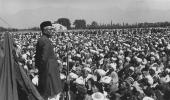

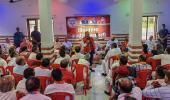

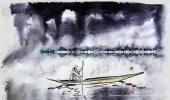


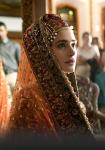

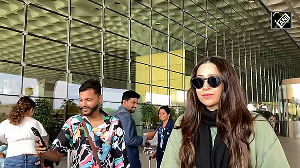
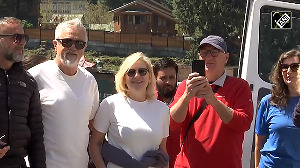
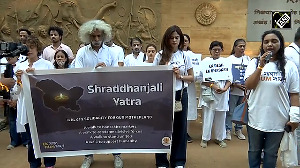
 © 2025
© 2025